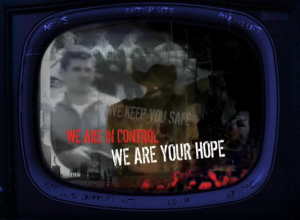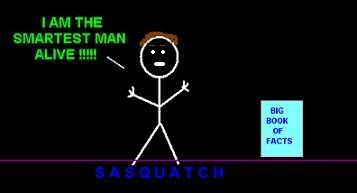http://<br />
http://watchingameric...s000012.shtml]
El Pais, Spain
Bush Told Aznar that U.S. Would Be in Baghdad By March - with or Without Second U.N. Resolution
"On the 16th of March 2003, even as Bush maintained his public demands for Saddam to 'disarm or it's war,' Bush, Blair and Aznar decided to replace the U.N. Security Council and usurp its functions to declare war on their own accord."
By Ernesto Ekaizer
Translated By Douglas Myles Rasmussen
September 27, 2007
Spain - El Pais - Original Article (Spanish)
Four weeks before the Iraq invasion which began on the night of March 19-20, 2003, George W. Bush publicly put his demand of Saddam Hussein in the following terms: either disarm or it's war. But behind closed doors, Bush knew that war was inevitable. During a long private conversation held on Saturday, February 22, 2003 at his ranch in Crawford with then-Spanish President José María Aznar, Bush made it clear that the moment had arrived for Saddam's undoing. "There are two weeks left. In two weeks we'll be militarily ready. We'll be in Baghdad by the end of March," he told Aznar.
[Only a Spanish translation of transcript is now available . An English translation will follow, but here are a few excerpts translated by Harper's Magazine ].
As part of this plan and after meeting British Prime Minister Tony Blair on January 31 - Bush had just agreed to put forward one last diplomatic maneuver: the proposal of a second U.N. Security Council resolution. Its objective: to legally open the door to the unilateral war that the United States was prepared to unleash with over 200,000 soldiers that were stationed in the region and poised to attack.
Bush was conscious of Blair's domestic difficulties, and wasn't unaware of Aznar's. Just seven days before the meeting at Crawford, three million people demonstrated against the imminent war in several Spanish cities.
"We need you to help with our public opinion," Aznar requested. Bush then explains to Aznar the likely effect of the new U.N. resolution that he wanted to put forward: "The resolution will be custom-made to help you. It will offer us a little of the same." To which Aznar responds: "It would help us to co-sponsor it and be co-authors - in order to get many others to sponsor it." Aznar then offers to give European political cover to Bush, together with Blair. Aznar's dream of laying the foundations for a new relationship with the United States - following the example of the United Kingdom - was on the verge of becoming a reality.
On February 20, Aznar had traveled with his wife, Ana Botella, to the United States, making a stop in Mexico to persuade (unsuccessfully) President Vicente Fox of the need to support Bush. On the 21st, the pair, accompanied by President Aznar's entourage, arrived in Texas. Aznar and his wife stayed at the ranch's guest house.
The meeting on the following day, Saturday, included President Bush, his then-National Security Adviser, Condoleezza Rice, and the man charged with European and Eurasian Affairs at the National Security Council, Daniel Fried. As for Aznar, he was accompanied by his international policy adviser, Alberto Carnero, and the Spanish ambassador to Washington, Javier Rupérez. During the meeting, Bush and Aznar held a four-way telephone conversation with British Prime Minister Tony Blair and the President of Italy, Silvio Berlusconi.
Ambassador Rupérez translated from English for Aznar - and from Italian for Condoleezza Rice, while two other interpreters worked for Bush and his team. It was Rupérez who took the notes of that conversation in a memorandum that remained secret until today.
The conversation is impressive for its direct, friendly and even menacing tone when, for example, the discussion centers on the necessity of countries like Mexico, Chile, Angola, Cameroon and Russia (member of the U.N. Security Council) to approve the new resolution as a symbol of friendship toward the United States … or to suffer the consequences.
One notices the lack of interest in the work of the [weapons] inspectors. This after the chief of the inspectors, Hans Blix, had just a week before (on February 14) shot down with "solid well-supported data," the arguments put forward by U.S. Secretary of State Colin Powell before the Security Council on February 5, 2003 WATCH . The Spanish side, including the Spanish Foreign Minister, Ana Palacio, had warmly supported this information from Blix - information that the very same Powell later qualified as a "collection of falsehoods."
THE BLIX REPORT
According to Blix, Iraq was taking steps toward actively cooperating to resolve the outstanding disarmament questions. His tone had been less critical than in his previous report from the 27th of January, 2003.
"Since we arrived in Iraq three months ago, we have made more than 400 surprise inspections in some 300 locations. Up to now the inspectors have found no prohibited arms … If Iraq decides to cooperate still more closely, the period of disarmament overseen by inspections could be even briefer," the chief inspector determined.
The Director of the International Atomic Energy Agency (IAEA), Mohamed ElBaradei, reported on February 14 that some technical questions still remained unanswered; but he added, "There are no disarmament problems left to resolve." According to him, no proof had been found that Iraq was carrying out nuclear activities or any activities related to nuclear energy, another clear denial of what Powell had claimed about the Iraqi nuclear program.
It was as much the initial fruits of the inspection work as it was the finalization of U.S. preparations that led Bush to fix the start of military operation on the date of March 10, 2003, to which nine days were added to obtain the second U.N. resolution. The process of moral persuasion that Aznar and Palacio executed by telephone calls and bilateral meetings failed to attract more than four votes: the three sponsors and Bulgaria. Nine votes were necessary.
On March 16, 2003, the failure to secure this legal cover for the imminent war led Bush to decide, along with Blair and Aznar, to hold a summit in the Azores. This was a location suggested by Aznar as an alternative to Bermuda for a reason that he explained to Bush: "The name of those islands is associated with an article of dress that isn't exactly appropriate for the moment we find ourselves in."
There on the 16th of March, Bush, Blair and Aznar decided to replace the United Nations Security Council and usurp its functions to declare war against Iraq on their own accord. On the morning of March 17th, the ambassador of the United Kingdom announced at the United Nations in New York the withdrawal of the second resolution. A defeat in the voting would have complicated the race toward war.





![Send a message via MSN to Casanova[OCAU]](https://thefinalfantasy.net/forums/images/misc/im_msn.gif)















Bookmarks